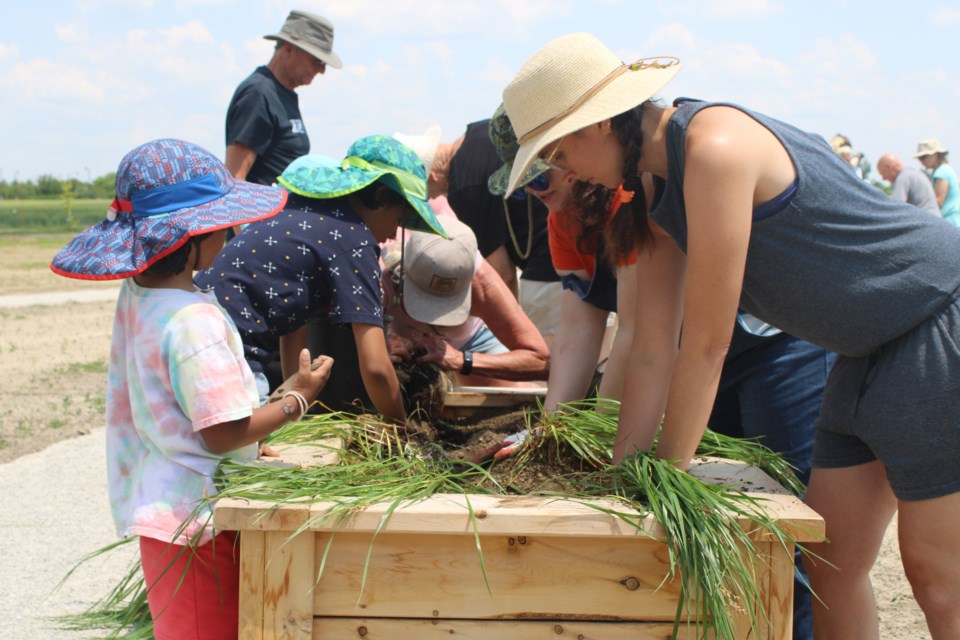WELLINGTON COUNTY – The sun burned bright and hot in the sky as a group of volunteers gathered to dig into the soft earth in planters and the ground to place traditional Indigenous plants and medicines in Wellington County.
The group was doing this at the recently-opened Indigenous Gathering Circle, located behind the Wellington County Museum at the Wellington Place campus, coinciding with two significant days – Indigenous Peoples Day and the summer solstice.
“We have this wonderful space that has been created for us, we decided to work with mother earth, that’s a great way to celebrate national Indigenous Peoples Day is to put your hands with mother earth,” said Colleen Brunelle, chair of Wellington County’s Indigenous Advisory Committee (IAC). “On the summer solstice, there’s lots of symbolism behind using this day as the first day of summer to celebrate creation and plant.”
Around 50 volunteers split into groups to plant things like sweetgrass, corn, sage, pollinators and perhaps most significantly tobacco.
“There’s lots of teachings about tobacco but it’s the first medicine. It’s the medicine that precedes all other medicines,” Amber Holmes, event organizer and IAC member, explained to the volunteers. “Whenever we’re planting anything or harvesting anything we lay down tobacco. We send our prayers into it … the intent is that it is a medicine of gratitude.”
Having access to these plants and medicines is significant for the Indigenous community, said O’dah Ziibing Ashkewe, a Guelph-based activist and sixties scoop survivor who also goes by Mike.
“Sweetgrass is getting harder and harder to find in the wild, so when you do take it on, it’s a responsibility to care for it, harvest it, replant it, make sure that it keeps going,” Ashkewe said. “It’s nice to have a sustainable space that the county provided, I think that’s a big step towards truth and reconciliation.”
It’s all part of growing the Indigenous Gathering Circle to its intended vision, Brunelle explained. What was once a farmers’ field is now an Indigenous space with trees, plants, rocks and wildlife – something Brunelle sees is lacking in Wellington County and Guelph.
She noted nearby there is a hospital, OPP station, public health building, daycare and long-term care home that may have Indigenous or non-Indigenous clients who wish to use the space as an alternative way to heal or learn.
“It goes right from beginning to end, that’s why it’s a circle, that’s the teaching of the medicine wheel too so we have all stages of life,” Brunelle said.
More information on how to volunteer at the gathering circle, events there and to donate can be found online.



